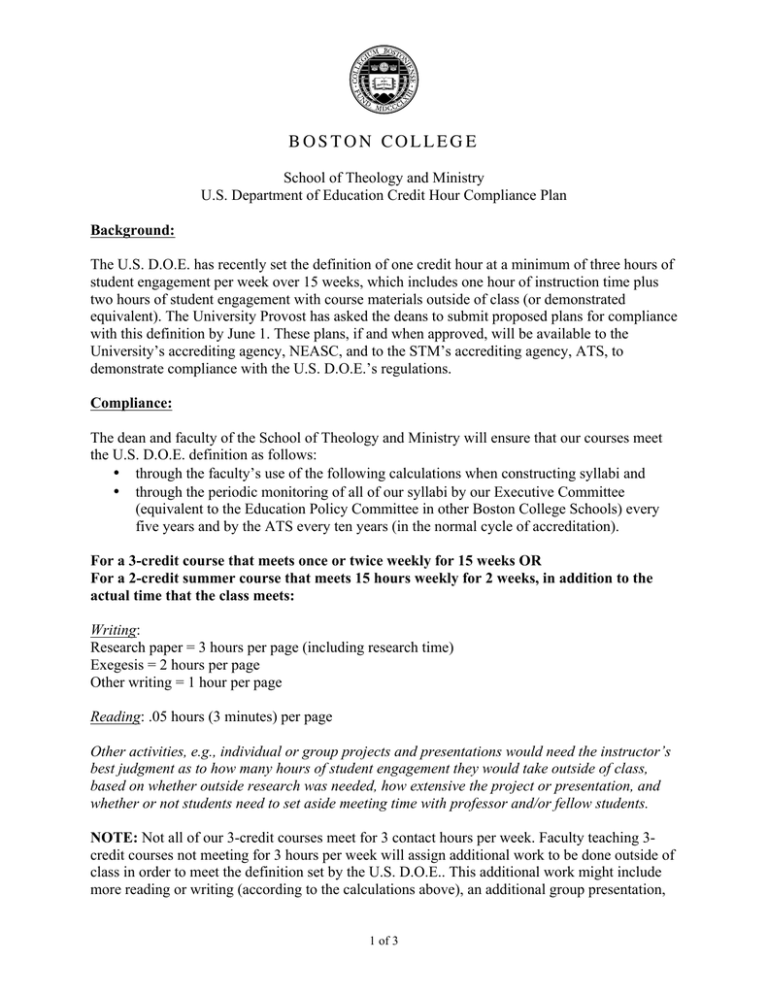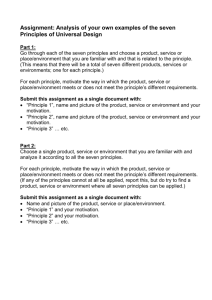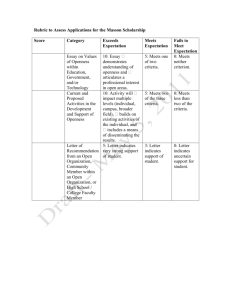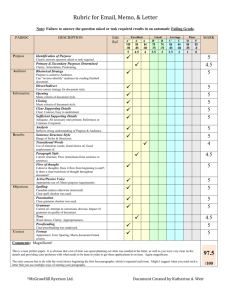B O S T O N C O...
advertisement

BOSTON COLLEGE School of Theology and Ministry U.S. Department of Education Credit Hour Compliance Plan Background: The U.S. D.O.E. has recently set the definition of one credit hour at a minimum of three hours of student engagement per week over 15 weeks, which includes one hour of instruction time plus two hours of student engagement with course materials outside of class (or demonstrated equivalent). The University Provost has asked the deans to submit proposed plans for compliance with this definition by June 1. These plans, if and when approved, will be available to the University’s accrediting agency, NEASC, and to the STM’s accrediting agency, ATS, to demonstrate compliance with the U.S. D.O.E.’s regulations. Compliance: The dean and faculty of the School of Theology and Ministry will ensure that our courses meet the U.S. D.O.E. definition as follows: • through the faculty’s use of the following calculations when constructing syllabi and • through the periodic monitoring of all of our syllabi by our Executive Committee (equivalent to the Education Policy Committee in other Boston College Schools) every five years and by the ATS every ten years (in the normal cycle of accreditation). For a 3-credit course that meets once or twice weekly for 15 weeks OR For a 2-credit summer course that meets 15 hours weekly for 2 weeks, in addition to the actual time that the class meets: Writing: Research paper = 3 hours per page (including research time) Exegesis = 2 hours per page Other writing = 1 hour per page Reading: .05 hours (3 minutes) per page Other activities, e.g., individual or group projects and presentations would need the instructor’s best judgment as to how many hours of student engagement they would take outside of class, based on whether outside research was needed, how extensive the project or presentation, and whether or not students need to set aside meeting time with professor and/or fellow students. NOTE: Not all of our 3-credit courses meet for 3 contact hours per week. Faculty teaching 3credit courses not meeting for 3 hours per week will assign additional work to be done outside of class in order to meet the definition set by the U.S. D.O.E.. This additional work might include more reading or writing (according to the calculations above), an additional group presentation, 1 of 3 an additional meeting with a teaching assistant, etc. These additional items plus class time would need to add up to 9 hours of student engagement per week with course material both inside and outside the classroom. A course that meets 3 hours per week for 15 weeks would need a minimum average of 6 hours of student engagement outside the classroom. A course that meets 2.5 hours per week for 15 weeks would need a minimum average of 6.5 hours of student engagement outside the classroom. A course that meets 2 hours per week for 15 weeks would need a minimum average of 7 hours of student engagement outside the classroom. For an online course: Kick-Off or Summary: 3 hours per page (includes research, reflection, and reading of others comments) Posting: 1.5 hours per post (including reading others responses in order to respond) Blog Entries in Response to Readings: 1 hour per entry Reading and other Writing same as above. For Holistic Formation for the Practice of Ministry, a one-credit year-long formation experience that meets 6 times per semester for 1.5 hrs per session with a course extension to be completed over the reminder of the student’s program: Reading and Writing: same as above. Course Extension Activities (Spiritual Formation Plan): 100 hours/plan (can include retreats, journal writing in connection with other group activities, individual spiritual direction, etc.) NOTE: Summer Holistic Formation, for which students also receive 1 credit, meets only 6 times for 2 hours each session, and the reading and reflection assignments are commensurately shortened as well--although it carries with it the same course extension, which brings it over the U.S. D.O.E. minimum of 90 hours per credit. For Contextual Education, all degrees and levels, summer and academic year, in addition to class meeting times (8 times per semester at 2.5 hours each): Reading and Writing: same as above. Supervision: 1 hour per meeting Site Paper Work: 0.25-0.5 hours (15-30 minutes) per page 2 of 3 Work on Site: Actual number of hours student is required to be at site 3 of 3



